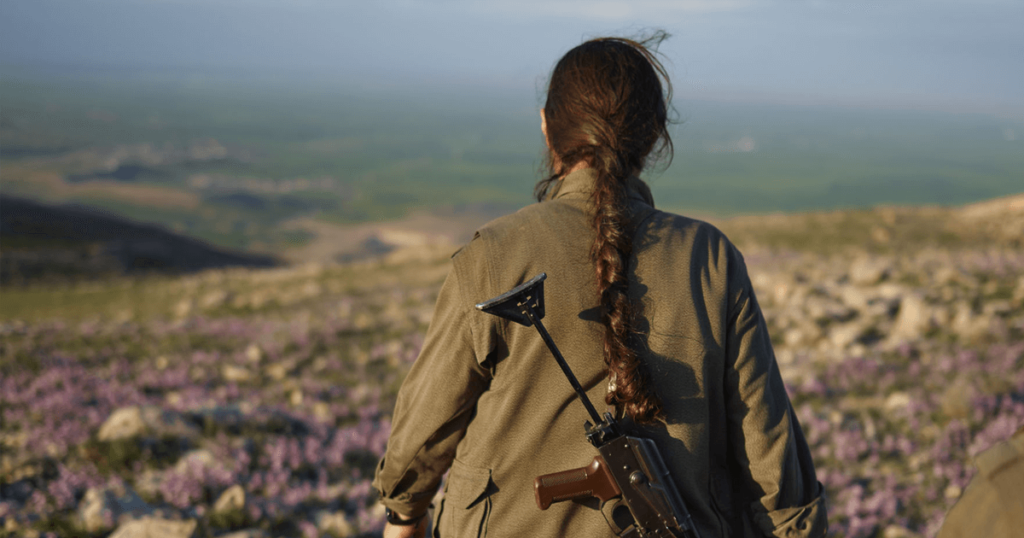A Road Unforeseen
Read an excerpt from Meredith Tax’s book about the women fighting the Islamic State—and winning

We spoke with Meredith Tax our podcast, Smarty Pants, about her new book, A Road Unforeseen: Women Fight the Islamic State. Read an excerpt from the introduction, below, and then listen to the podcast to hear more about the singular society that has sprung up in the midst of civil war.
In August 2014, Daesh—the Arabic acronym for the terrorist group that has been variously called ISIS, ISIL, and the Islamic State—attacked the city of Kobane in Northern Syria, and I started seeing pictures of smiling rifle-toting girls in uniform defending the city. Who were these girls? After hours of searching the web, I realized that they belonged to a revolutionary organization of which I had never heard, the Democratic Union Party (PYD) of the Syrian Kurds, which had liberated three areas, Cizire, Afrin, and Kobane, on the Syria-Turkey border, setting up cantons where people make decisions through local councils and women hold 40 percent of all leadership positions. As an entity, the cantons are called Rojava.
That such a liberated area even existed was big news to me. On that summer’s maps, Rojava—the Kurdish word for “west”—looked like three unconnected yellow blobs making up an area slightly smaller than Connecticut, surrounded by a vast and menacing gray field representing territory controlled by Daesh. In the summer of 2014, the ski-masked jihadis of Daesh seemed invincible as they swept down on the terrified towns and cities of Iraq, while the Iraqi army and the vaunted Iraqi Kurdish militia, the peshmerga, fled before them. Not until Daesh reached Kobane did they meet guerrillas who had built something they were willing to fight for. Since then, the Rojava forces have captured Tal Abyad, linking two of the three yellow blobs to make a larger contiguous unit; Daesh has also lost other territory.
The Obama administration had named Daesh an “imminent threat to every interest we have,” so the media were ecstatic to discover the photogenic young female guerrillas. The press tended, however, to avoid discussing what they stood for, and no wonder, for these girls did not fit into any acceptable Western narrative: They were feminists, socialists, if not indeed anarchists or communists, and led by a group linked to Turkey’s Kurdistan Workers’ Party (PKK), which is listed as a terrorist organization by NATO, the UK, and the US. …
The leading role of Kurdish women in the war against Daesh, and what that implies about the kind of society they are trying to build, demands our attention. It is a crux, marking the stirrings of a new historical period. As Kurdish writer Memed Akso put it, “The Kurds and their country Kurdistan are the site of a great battle now, between freedom and enslavement, the womb from where a new civilization has the opportunity to grow.”
Excerpt from A Road Unforeseen: Women Fight the Islamic State. Copyright © 2016 by Meredith Tax. Published by Bellevue Literary Press: www.blpress.org. Reprinted by permission of the publisher. All rights reserved.

